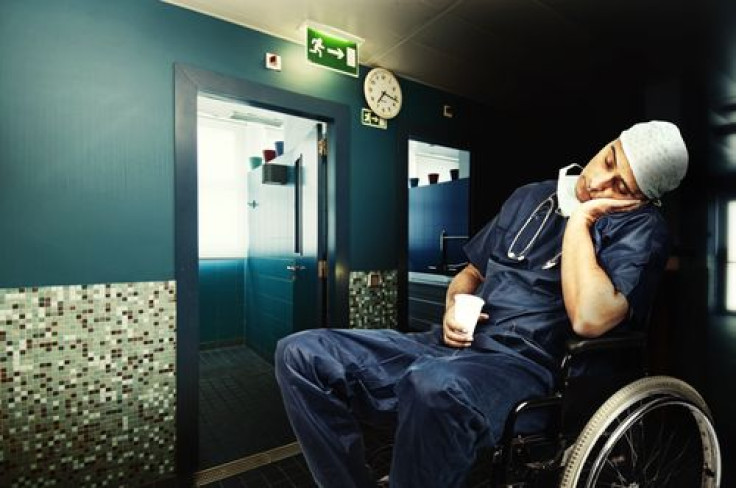Surgeon All-Nighters Don’t Make Next-Day Surgery More Risky

Although jumping into a final exam after pulling an all-nighter or driving a car while sleep-deprived are both intensely risky behaviors, it turns out the hazards of delicate surgical procedures are immune to surgeons' all-nighters.
A new study published in the Journal of the American Medical Association suggests that doctors who stayed up the night prior to gallbladder surgeries — often performing other surgeries in the interim — did not show any technical deficiency as a result of the sleep deprivation. Researchers from Western University argue that surgeons are able to maintain their skill because of the training they received prior to reaching their positions, and that patients should feel “reassured” by the team’s findings.
"Even if they have a surgeon who may be working long hours or is tired, they shouldn't be worried that he isn't capable of performing the surgery to the best of his ability,” study co-author Danielle Nash told Reuters Health.
The focus of the study was non-emergency gallbladder removal surgery, known formally as a laparoscopic cholecystectomy. A total of 331 surgeons comprised the study, operating out of 102 hospitals in Ontario. Based on the surgeons’ billing for emergency procedures, researchers were able to determine that doctors carried out the surgery after an all-nighter 2,078 times. For each of these, the team parsed through doctor records and found four other surgeries where he or she hadn’t operated the night before.
As Nash suggested, the results were reassuring. Just under one percent of all surgeries resulted in patient injury directly because of doctor error, such as a punctured bowel or blood vessel. Two percent of the time, surgeons had to make larger incisions in order to perform the surgery. But again, this was independent of whether the doctor had been running on empty.
Out of all the 8,312 cases, only five or fewer patients died within one month of their surgeries in doctors who hadn’t slept. Seven or fewer died when the doctor had gotten sufficient sleep.
Trauma surgeon Dr. Jordan Weinberg echoed Nash’s belief that patients should feel confident in their surgeon even if he or she isn’t well-rested. Admittedly, it’s par for the course.
"We're trained from the get-go to be able to function to the best of our abilities under duress,” Weinberg told Reuters.
Prior studies have pointed in the opposite direction in terms of doctor performance. A 2010 study, for example, suggested that doctors who are sleep-deprived have a moral obligation to tell patients when they feel fatigued, arguing that being awake for so long is akin to alcohol intoxication. But the alternatives are slim: hospitals must strike a balance between providing around-the-clock care and maintaining the mental state of their doctors.
“Ensuring that physicians are not fatigued from sleep deprivation is a challenge for medical systems,” the researchers wrote in the New England Medical Journal, “given competing needs for continuity of care and 24/7 coverage of clinical services.”
Weinberg concedes that this is a problem for doctors. In times of crisis, patients aren’t admitted to the hospital according to anyone’s schedule. But for non-emergency surgeries, they should have the option of rescheduling if they feel a doctor is too tired. Unfortunately, neither the patient nor the hospital normally has the leeway to allow for this. "If you came in for your elective surgery one morning and discovered that your surgeon had been in all night doing a complex case, it would be reasonable to say, ‘I want to schedule this for another day,’” Weinberg said.
Ultimately, however, he doesn’t believe this scenario takes place on a regular basis.
"It's something to be aware of as a patient," he said. But, "I don't think it should be a great cause for concern."
Source: Vinden C, Nash D, Rangrej J. Complications of Daytime Elective Laparoscopic Cholecystectomies Performed by Surgeons Who Operated the Night Before. JAMA. 2013.



























